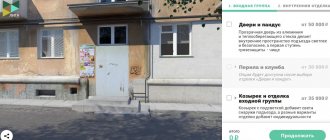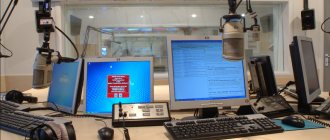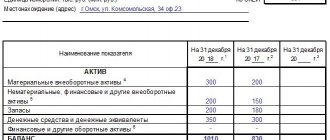Education is perhaps one of the most important investments in the future. In order to master a profession that is valued in society and will bring significant income, it is necessary to receive an appropriate education. And one of the mandatory conditions for admission to any university in the country is passing the unified state exams. Now the importance of successfully passing the Unified State Exam has become even more important, since universities are tightening the requirements for admission every year (especially for budget places, the number of which also has a clear tendency to decrease).
It's no secret that it is almost impossible to prepare for the Unified State Exam, relying only on the material offered within the narrow framework of the school curriculum. Courses in various subjects simply do not include such a section as preparation for the unified state exam. To successfully pass this test, the student must not only have the necessary knowledge, but also understand the specifics of the various task formats. In addition, it is simply pointless to include elements of preparation for this type of certification in the program of each of the school disciplines, because in addition to the subjects required to pass (Russian language and mathematics), there are also optional exams. And, you see, for students who have decided to connect their future with physics or mathematics, preparing for the Unified State Exam in the humanities will be a waste of time.
So, additional classes are a necessity. The organized business of preparing for the Unified State Exam is a young but promising industry, as it provides its clients with a number of undeniable advantages compared to private tutoring.
Firstly, such training centers vouch for the qualifications of their teachers. Prospective students looking for tutors via the Internet usually face the risk of getting a “pig in a poke.” Secondly, one of the inconveniences of private tutoring is the choice of location, and the training center solves this problem by offering its clients a comfortable office equipped with the necessary equipment and furniture.
Before you start
Decide what services your center will provide. It is not necessary to immediately include preparation for the Unified State Exam in all school courses in the curriculum. Some subjects, due to their specificity, are not very popular among students, so at the initial stage of business development it is better to abandon them. It will be more convenient and cost-effective to focus on the required disciplines (Russian language and mathematics) and the most popular subjects (in 2020 these were physics, social studies, history and biology).
It is in these areas that it is necessary to recruit a staff of teachers (at this stage it is advisable to maintain the ratio “1 teacher - 1 discipline”) and draw up a program of training courses for state exams. The last point needs careful development and monitoring by professionals. The course program should include improving knowledge of the subject and developing skills in answering various types of examination tasks - from test to creative ones.
In addition, you need to create a class schedule with an emphasis on evening hours (since future applicants are busy at school during the day). The approximate operating hours of such centers are 16.00 – 22.00. During this time, you can conduct three classes lasting 2 hours or two classes lasting 3 hours. A well-designed compact schedule will allow organizers to make do with a one-room office at the first stage (which in turn will make rent affordable).
Pros and cons of the Unified State Exam
The types of tasks that appear on the Unified State Exam are usually known. To some extent, this is reminiscent of a university exam, when a person must answer on tickets, but these tickets are given to him in advance, and his task is simply to learn. This, in general, is the essence of the Unified State Exam.
What I personally like about this exam is the clarity. There is a codifier, a kind of list of formulas and knowledge that a future applicant must know. Which task under which number on which topic and the level of difficulty of these tasks are viewed in sample tests or preparation books.
But the Unified State Examination system, of course, has its own problems. Last year we prepared the guys and noticed that the result was slightly lower than what they showed in the trial exams. It turned out that in 2020 this was a global problem, because the organizers of the Unified State Exam in mathematics decided to suddenly set more complex ones instead of some standard tasks that the children had already learned to solve automatically. Nevertheless, in general, such a system is much more predictable in terms of tasks. In addition, it does not involve any additional questions. In my opinion, everything is absolutely transparent and if a person wants to pass with 100 points, then he will pass without any problems, the main thing is how intensively he prepares. And, of course, this is much easier than, for example, passing the entrance exams to a university perfectly, as was the case before.
The Unified State Exam has some specifics: a person must study at school, where the material will be explained to him, then he must practice some fragments from this material, and some can be safely forgotten before university, because they simply will not be asked. In this regard, in order to successfully pass the Unified State Exam, it is necessary either to organize special additional classes at school, where people will improve their knowledge on tests, or to focus on additional classes.
Before I started online school, I worked as a tutor, and I did not have the opportunity to compare the level of preparation of children in the regions and in the capital. Now I can conclude that the level in the regions is in some places slightly lower. But as for the issue of motivation for children from small cities, it is several times higher than in the capital. The guys from the regions grab every opportunity to somehow raise their level and take the preparation process seriously. In our courses this year, many students studied from Voronezh, and in the end they all entered MSTU. Bauman.
Documents and licenses
There are two options for legal registration in this business - individual entrepreneurship in the field of additional education (IE) and a non-state educational institution (NOU).
Registration of an individual entrepreneur is simple and lacks many formalities (it is not necessary to buy a cash register and obtain permission from the SES to open an office, and also to create health records for your employees). The main disadvantage of individual entrepreneurs in this case is the impossibility of mediation, that is, the center owner does not have the right to hire employees. Your clients enter into an agreement for the provision of services directly with teachers - they must be registered as individual entrepreneurs (which, in turn, imposes on them the obligation to pay taxes).
NOU, on the contrary, is more convenient for teachers (who in this case do not need to worry about tax payments), but also more burdensome for business owners. To obtain a license, it is necessary to provide information about the compliance of educational premises with ES standards, a report from the fire service, information about the material and technical base of the center, a methodological lesson plan, information about the number of teachers and the approximate number of students and some other information. But, having a license to open a non-state educational institution, you will be able to officially hire teachers and other employees.
Main risks
One of the disadvantages of the business of centralized preparation for state exams is its seasonality. As a rule, such centers are in demand from September to May-June, and there is a risk that two or three months of “downtime” will turn out to be unprofitable in terms of rent, because during the summer holidays, schoolchildren prefer to relax rather than study.
To prevent the hot months from becoming months of forced downtime, many owners of centers for preparing for the Unified State Exam open children's or family clubs on their basis. During the holidays, the first option is especially relevant - many parents who are busy at work are happy to send their children there. Thus, the child does not just “skip” his free days, but finds himself involved in creative projects, develops his talents and, most importantly, is supervised.
Training technology in preparation courses for the Unified State Exam
Preparing school graduates to take the Unified State Exam is a very hot topic in Russia. To do this, it is necessary to open courses to prepare for passing the Unified State Exam. To begin with, you need to determine the subjects in which training will be conducted. The most popular courses are in mathematics and the Russian language, as they are mandatory. Next, you need to decide on additional subjects, for example, social studies and physics. Then you need to select teachers, preferably under the age of 40, with classical higher pedagogical education and experience in preparing for the Unified State Exam.
Location
The ideal place to open a preparation center for the Unified State Exam is the central areas of the city. The closer your office is to the city center, the greater the traffic in this location and the more convenient it is located for potential clients. Moreover, it is easier to get to the central areas from almost anywhere in the city.
Rental prices in different regions of the Russian Federation, of course, have a fairly wide range, but the approximate “corridor” is 500-1500 rubles per month per square meter (prices are indicated increasing from the periphery to large cities). As mentioned above, with a well-designed schedule, a one-room space designed for ten to fifteen jobs will be sufficient for the normal functioning of the center. The approximate area of such classes is 25-30 square meters. Remember that the office must comply with the general SanPiN standards.
Personnel
Qualified teachers who have serious teaching experience and understand all the nuances of the Unified State Exam format are the main component of the success of your future business. Actually, the knowledge and skills of teachers are the goods that the Unified State Exam preparation center offers its clients, so the choice of personnel must be approached extremely responsibly.
Mandatory requirements for candidates wishing to work in your center are the presence of a pedagogical education and teaching experience, as well as experience in preparing students for certification in the Unified State Exam format (no matter how expert the teacher is in his subject, the absence of the last point in the resume makes him useless for this business).
A universal means of recruiting personnel is the Internet - here various HR portals (both regional and all-Russian - you can post advertisements for center vacancies and search for resumes yourself) and social networks will come to the rescue. VKontakte, as the largest and most popular Russian social network, will be especially useful - it is imperative to create a group dedicated to the activities of the center. Through this group you can not only recruit teachers, but also carry out business PR.
In order to attract cooperation from teachers, most of whom are accustomed to using private tutoring as a source of additional (or even main income), it will be necessary to be flexible. Private tutoring is not taxed, so you must offer your new employees conditions that cover the benefits of this income. The main bonuses of cooperation between a teacher and the Unified State Exam preparation center are, without a doubt, stability and a calmer format of work - the teacher no longer needs to search for students and travel to different addresses to conduct classes (as an option, to receive students at home, which also creates certain inconvenience for the teacher and his family). In addition, in a cozy and equipped office, you can conduct not only individual consultations (the main format of classes practiced by tutors), but also classes in groups, which brings in more income.
Consultation “How to prepare a kindergarten for opening after a long break”
Consultation
“How to prepare a kindergarten for opening after a long break”
Kindergartens will not be able to operate in 100% of the previous mode yet. But it is already possible to resume work - gradually, carefully, taking into account the latest recommendations of the Ministry of Education and Rospotrebnadzor. In what order to get out of the annoying regime of restrictions, what documents to prepare for this.
When will educational institutions open?
Rospotrebnadzor announced three stages of lifting restrictions (letter dated 05/01/2020 No. 02/8526-2020-14). The Ministry of Education supported the action plan related to educational organizations (letter dated May 12, 2020 No. VB-1007/03). Regional authorities are launching the first stage now; they can break it down into substages for themselves. Each region determines the exact dates independently based on the epidemiological situation. Some restrictions may remain in place for a while longer.
Important
The authorities’ goal at each stage is to expand the list of public places where people will have more contact with each other.
First stage.
Restrictions are lifted on physical education and outdoor sports, and walks with children. Small trade and service facilities are allowed to operate while maintaining social distance between visitors. The sanitary regime remains in place: in public places that are open and in transport you must wear a mask and gloves. At this stage, educational organizations continue to operate under restrictions.
Example
Like in Moscow
In the epicenter of the pandemic - in Moscow - industrial enterprises and construction sites are already open, MFCs and car sharing are resuming work. Physical education and sports are still prohibited here. Schools continue to work remotely, kindergartens continue to work in groups on duty. In schools, even the last calls were held online.
Second phase.
Restrictions on walks with family members may be lifted, trade and service facilities will open in a larger area, but with a limit on the number of visitors. During this period, schools are working with graduates remotely, kindergartens are still in duty groups. But duty groups are available to all families who cannot leave their child at home. Take from such parents special statements drawn up according to our template.
Example
As it was before
From May 12, duty groups are gradually opening to all children, regardless of the profession of their parents. Before this date, they were available only to children of doctors, firefighters, police officers and other socially significant employees.
Third stage.
Rospotrebnadzor proposes to open recreational areas for the population - parks and public gardens, subject to social distancing conditions.
Trade and service enterprises will also gradually begin to open without limiting the area of facilities and the number of visitors. At this stage, all educational organizations are planning to open. The opening hours will be normal, but sanitary safety measures will still have to be observed. How to do this correctly?
Attention
The timing of the opening of educational organizations will be determined by the heads of regions
If the sanitary situation is favorable, the restrictions will be eased and a procedure will be established for returning to normal operation. If the epidemiological situation remains tense, restrictions on work may continue. For example, the mayor of Moscow stated that in the summer of 2020, kindergartens in the capital will continue to operate in a limited mode of duty groups. Parents must decide for themselves whether to send their child to kindergarten at this time or not. According to the Minister of Education S. Kravtsov, the regime of duty groups will be the main one for kindergartens in most regions this summer.
If the epidemiological situation remains unfavorable, the ban on the work of public organizations will not be lifted. It may also be returned after cancellation if an increase in incidence is recorded. In this case, continue to work as under the non-working days regime (subparagraph “b”, paragraph 1 of Presidential Decree No. 316 of May 11, 2020). Organize duty groups in kindergarten and remote interaction with parents of preschoolers.
In order not to miss the deadlines for the opening of educational organizations in your region, we recommend monitoring the regulations of regional authorities. We will also monitor the situation and be sure to share the latest news with you in this program
. Read it to the end to:
– correctly restart the work of the kindergarten after a long regime of restrictions;
– create a summer work plan that will allow your kindergarten to avoid downtime this summer;
– resolve pressing personnel issues that have accumulated during the pandemic;
– introduce a remote work format in kindergarten and protect against the second wave of the pandemic.
How to prepare a kindergarten for opening
When the head of the region gives permission, prepare the kindergarten for opening, taking into account the recommendations of the Ministry of Education and Rospotrebnadzor (letters dated 05/08/2020 No. 02/8900-2020-24, dated 05/12/2020 No. VB-1007/03). Notify employees about this, inform children’s parents about the changes, ensure safe working, training and education conditions.
Notify the kindergarten staff.
Let them know that you are returning to full-time work and warn that the schedule may change if the sanitary situation worsens. Issue an order to resume work. In the preamble, indicate the regional regulatory act on the basis of which you are acting, and in the text - the opening date of the kindergarten. Familiarize all employees with the order. Do this in any convenient way - by email, phone or message in the general chat. For those who have already resumed work, please familiarize them with their signature. Use our sample order.
Check the list of employees. In many regions, employees over 65 years of age and with chronic illnesses are still required to stay home. They should not be allowed to work. Send everyone the list of chronic diseases that is established in the region. Ask in any way to report the presence of diseases from the list.
Important
Employees over 65 years of age or with chronic illnesses can continue to work remotely for now. Return them to normal mode when restrictions are lifted.
Inform parents of preschool children.
Please tell us from what date you start working normally. Post the information on the official website of the kindergarten. Instruct substitutes to send it to parents via instant messengers. Explain that changes are possible depending on the sanitary situation in the region. Ask to check the daycare website regularly to make sure you don't miss anything important. Please note to parents that they must provide a certificate of health of the child if he has not attended kindergarten for more than five days. It indicates the diagnosis, duration of the disease, information that the child has not had contact with infectious patients (clause 11.3 of the kindergarten’s Sanitary Rules and Regulations).
Additionally, publish information on the website that will help parents monitor their children, maintain hygiene and preventive measures during infectious diseases. Information can be taken from the joint letter of Rospotrebnadzor and the Ministry of Education dated 02/07/2020 No. 02/1814-2020-23, SK-32/03. Based on this letter, we have already prepared a memo for parents.
Prepare the building and premises of the kindergarten.
Create safe working conditions for employees, training and education of preschoolers. Rospotrebnadzor recommends purchasing bactericidal units for kindergartens and placing them in rooms for children and workers. You will also need dispensers with hand sanitizers - they should be in a visible place at the entrance to the kindergarten building and next to the soap in the bathrooms (clauses 7 and 14 of the Recommendations to the letter of Rospotrebnadzor dated 05/08/2020 No. 02/8900-2020-24). Place a warning sticker with instructions for use next to the dispenser. In other rooms, arrange dispensers at your discretion.
Before opening the kindergarten, carry out general cleaning using disinfectants (clause 1 of the Recommendations to the letter of Rospotrebnadzor dated 05/08/2020 No. 02/8900-2020-24). Place a new Rospotrebnazor notice at the entrance to the building. It will help staff, parents and children understand the upcoming changes.
Memo. How educational organizations work now
Draw up an order on the operating hours of the kindergarten.
Determine the order of the nearest work of the kindergarten in the order. In the introductory part of the order, refer to the regional act, according to which the kindergarten has the right to resume its activities. Even if you work in duty groups for now. In the text, indicate the new operating mode and indicate how the subordinate will work. Write down instructions for them in separate paragraphs.
Sign the order to open a duty group.
An order will be needed if there were no duty groups in your garden before. If you have, skip this document.
In the order, indicate the day the groups begin work, write down the instructions for the responsible employees. Complete the annexes to the order and indicate there the composition of the groups and the daily routine for the children.
When kindergartens are allowed to resume normal operations in your region, close the duty groups. Issue an order after an order is received from regional authorities or the founder.
Example
When else can duty groups be closed?
1. The country or region has lifted the self-isolation regime.
2. There is no need for the group to work: parents refused to take their children to kindergarten.
If necessary, issue orders to enroll children in the duty group.
If, after the opening of duty groups, new applications are received from parents, then accept children into the groups by a separate order. Indicate in it the number of the duty group into which the child was admitted, and from what date. Then, in a separate line, instruct the responsible employee to inform the parents of the decision to enroll the child in the group. We recommend doing it on the day you welcome your child.
Draw up additional agreements with employees.
Gradually bring teachers back from remote work. To do this, suggest that the location of the kindergarten be considered the new place of work.
Place an order to write off food products.
If until now there were no groups on duty in the kindergarten, it means that there may have been expired food left. Write them off when you resume work. To do this, issue an inventory order. Define in it the composition of the inventory commission and the time frame within which the food reserves need to be checked.
Prepare logs for temperature and access to work, issuance of masks and gloves.
When employees and preschoolers enter kindergarten, they will need to be closely monitored for their health. To do this, instruct the nurse to measure everyone’s temperature twice a day, and the person responsible for occupational safety to issue masks and gloves. Take these steps if such a requirement applies in your region or at your discretion. Instruct responsible employees to note information about the temperature and the issuance of personal protective equipment in the log books.
Attention
For the time being, give up matinees, parent-teacher meetings and other public events.
When the kindergarten returns to normal operation, matinees, parent-teacher meetings, and meetings with colleagues will still remain prohibited for some time. Now it is impossible to hold in-person mass events, including at educational organizations (letter of Rospotrebnadzor dated 05/08/2020 No. 02/8900-2020-24). Or the kindergarten will be fined from 200,000 to 500,000 rubles, and the manager – from 50,000 to 150,000 rubles. (Article 6.3 of the Administrative Code). The solution is to transfer everything to a remote format.
Marketing
A personal website is part of the image of any business. The virtual “business card” should have an attractive and concise design, reflect basic information about the activities of your center (list of subjects, cost and schedule of classes, list of teachers indicating their qualifications, address and contacts, etc.) and not be overly complex navigation. The “issue price” starts from 10-15 thousand rubles. In addition to the website, it is advisable to create a page on a social network, since future applicants (and many of their parents) are usually followers of VKontakte and Instagram. The price for maintaining a VK group is about 2 thousand rubles per month, on Instagram - about 1 thousand. However, the function of content management in social networks, as well as website maintenance, can be delegated to the center administrator.
A good advertising platform in this case would be thematic places (for example, stationery stores, bookstores and points of sale of teenage clothing and school uniforms, as well as stands located near educational institutions). In addition, you can place advertisements in buses or elevators (the price for one advertising space in one elevator or one bus per month is about 2 thousand rubles).
Getting into business
— Yura, did you take the Unified State Exam when you graduated from school?
— In 2006, when I was finishing eleventh grade, the Unified State Exam was already introduced, and we also took it as a test. But I wrote exams for college. And the story of entering MIPT is the beginning of my business. I always loved mathematics, I went to the Olympiads. But I hated physics, never studied it, copied in class - I was zero in physics, honestly.
One day, a classmate dragged me to the Physics and Technology Olympiad, which took place in March. I wrote mathematics at 10 or 9, this was already a passing grade. And in physics I didn’t understand a single problem, but I wrote a “solution” to all the numbers, and they gave me 2 points - probably for my sense of humor.
There were two chances left. Another Olympiad was supposed to take place in April, and the entrance exams themselves were to take place in July. I decided to prepare myself, without tutors. And he did not use methods like “resolve options.” It was already clear to me then that they don’t work if a person doesn’t understand the topic.
I began to figure out how to really understand, learn, gain systemic knowledge, and absorb a large amount of information in a short period of time. And the answer was simple - we need to go consistently. No matter how much you want to run forward, jump over. Still, the volume is huge: it has always been difficult to get into Physics and Technology, and now it has one of the highest passing scores in the country.
At the next Olympiad, I rewrote physics by 5 points. This assessment was an indicator for me: what I am doing is working. In fact, I went from zero to 5 points in a month. And for the next 2 months I was at home all the time, didn’t go anywhere, continued to teach. As a result, I wrote physics with 9 points and entered.
— Do you now use these teaching methods in your school?
“I used them both on myself while studying at the university, and with the first students who appeared in my second year.
The idea of the school did not appear immediately; there were other business projects - for example, the “Coursomania” website, on which we collected and promoted all the courses that existed in Moscow at that time. I considered other income ideas, such as working four jobs. Having set myself the goal of having 80 thousand rubles a month, I seriously drew up a schedule, which included working as a salesperson at Zara, tutoring, working as a janitor, and something else.
But then I realized that what I like most is teaching. And then I came up with a name - “Yuri Spivak School of Mathematics”, registered a domain, rented a room in a business center and told my students, of whom I had eight, that I was now teaching in groups. Some of the guys didn’t like the location; others thought that group classes would be ineffective. And I started in February 2011 with three students, each of whom studied in a “group” consisting of one person - because they were all different ages.
Then I somehow started advertising on Yandex.Direct, and I ended up finishing that school year with, it seems, twelve students.
— Besides contextual advertising, did you have any other advertising?
“At that time, I didn’t think in numbers, but in qualitative categories like “good”, “bad”, “cool”. Then it seemed good and cool to me to record video lessons. I took the current versions of the Unified State Exam and started recording a video with the solution using them. Then I distributed these entries among thematic groups on VKontakte. Yes, I also created my own VK group - without design, pictures, text. There was a question mark as an avatar; there was only a call to join the group.
And I forgot about it. When the school year ended, I thought that I needed to develop a group and went to VK. And I saw that two and a half thousand people had already joined my group - people watched the video and came to the group. There were 100 thousand views in total.
— And did the video lessons provide you with a stream for the next school year?
- Partly. The business center where I worked closed. There were no other suitable premises. I looked in CIAN, and at the same time I never chose anything inside the Garden Ring; for me it was expensive there. In desperation, I drove into the Teatralnaya metro station, and then the office center in which we still work appeared. There, 3 offices cost 50 thousand per month, you can’t get less. It was a lot for me, but there were no other options.
The first clients appeared from Yandex.Direct, and from video tutorials. Some students came when there was no furniture yet. I walked around the offices and said: here there will be a table, here there will be a chair. Later, at the end of the school year, I asked one of the graduates why she didn’t run away when she was shown empty rooms. She said: “I watched the video before, fell in love with your explanation of the solution, and it didn’t matter to me where the classes would be held.” Then I realized the power of content marketing. That year we graduated 93 students.
Equipment
The main tool of the center’s teachers is their experience and knowledge, so office equipment will not require large investments. However, it is necessary to create decent working conditions for teachers and students, in other words, to make your office a place where it is pleasant to study and nothing distracts from the educational process. To do this, you need to rent a suitable room (certainly with good sound insulation, so that extraneous sounds from outside do not interfere with classes), equip it with the necessary educational furniture (chairs, tables, cabinets, office equipment and a projector), and purchase teaching aids. The costs of these items (including rent) average 100-200 thousand rubles.
Profitability
The average cost of one hour of lessons with a private tutor is 300-500 rubles. In order not to lose clients, experts recommend increasing this figure by no more than 100 rubles per hour. At the same time, most existing centers for preparing for the Unified State Exam adhere to the practice of one-time payment for the entire training course or split the payment into two parts. The average price for courses is 15 thousand rubles per subject (5-6 months, two lessons per week, lesson duration - 3 hours). As for the monthly remuneration of teachers, the most common option here is a percentage of the total income per student or group (on average 15%).
Let’s say if a group consists of 10 people, each of whom brings 15 thousand rubles to the center, then the income from the group for a full course of study is 150 thousand, and the monthly income is 25,000. The teacher’s salary for running one group per month will be about 3,800 rubles
Financial indicators of the project
Initial financial investments will include costs associated with renting premises, repairs, purchasing all necessary furniture, machinery and equipment, as well as state registration of the organization. In various cases, depending on the region where the institution is located, the area of the premises, as well as the amount of purchased equipment, office equipment and furniture, the starting investment varies from one to six million rubles.
Ongoing monthly expenses consist of rent, salaries of teaching staff and other employees, expenses associated with marketing and advertising campaigns, and other expenses.
The income portion is generated from tuition fees and directly depends on the flow of clients of your organization. Net profit will depend on the regular number of clients, as well as the size of your monthly expenses and your ability to save.
Business in the educational sector will always remain a fairly popular type of entrepreneurship, providing a consistently high level of permanent income. The average payback period for projects, as practice shows, ranges from one to two years.
Summary
No matter how much criticism the format and procedure of the unified state exam may be subjected to, this form of assessment of school knowledge is not going to cease to exist in the near future. We should also not forget about the GIA - the “younger brother” of the Unified State Exam. Therefore, additional education services will always be in demand. On the other hand, the costs of starting a training business are very small (even in Moscow and St. Petersburg, starting capital in this area rarely exceeds 300 thousand rubles). The combination of the two above factors makes opening a center for preparing for the Unified State Exam a promising and not very difficult option for making a profit.
What else is worth remembering
Opening a store is an important event that allows you to present yourself to potential buyers. Hosting an opening event is no easy task and in addition to writing a script, selecting the right staff and creating POS materials, there are a few more points that you should not forget about.
First of all, it is necessary to ensure the transportation and logistics of equipment and inventory, take care of the technical support of the event and buy or rent musical equipment, lighting equipment, etc. in advance. It is also important not to forget about the decoration and thematic design of the site and the organization of installation and dismantling of complex structures for optimal functioning of the project.











